For harvesting planting material, choose the freshest, largest and densest fruits without rot and mold. Sellers do not always indicate whether there are bones in tangerines. If it is not possible to clarify this information, take several pieces of different varieties.
Peel the fruit and remove the bones from the pulp. For sowing, select the largest, convex and hard specimens. To increase the chances of germination, stock up on at least five seeds.
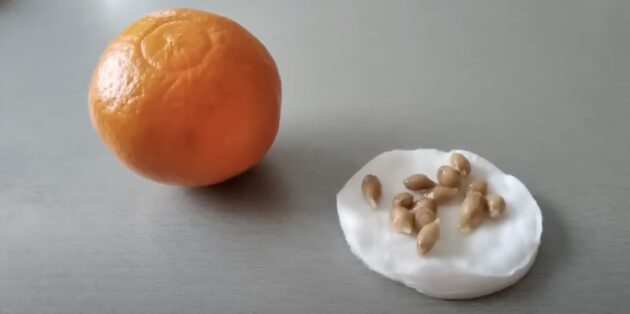
Tangerine sprouts hatch without any problems, but if you want to speed up the procedure, carefully remove the white peel from each bone. It is quite easily separated by nails.
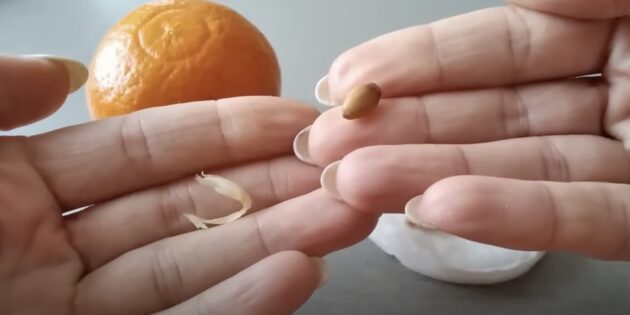
It is better to start sowing tangerine immediately after harvesting the seeds. If for some reason you need to postpone the procedure, wrap the bones in wet cotton pads or cloth and periodically moisten the material with water. This will keep the seeds from drying out.
Tangerine develops best in fertile soil with a neutral reaction (pH 6.5–7.0). The simplest and best option is to buy ready—made soil for growing citrus fruits. You can also take land for vegetable or flower seedlings. As a rule, such soil has a suitable level of acidity.
You can plant tangerines in plastic cups or pots with a volume of at least 200 ml. The main thing is that there are holes in the bottom to remove excess moisture. If necessary, make several holes with an awl or soldering iron.
Put expanded clay in each container with a layer of 1-2 cm, and then fill the cups to the top with prepared soil. Moisten the soil with water.
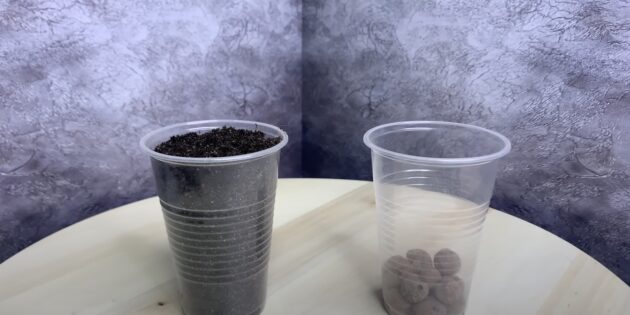
In the ground, make a 2-3 cm recess in the center of each cup. By the way, you can sow several seeds in one container. If all of them hatch at once, it is enough to carefully pull out the excess sprouts, leaving the strongest one.
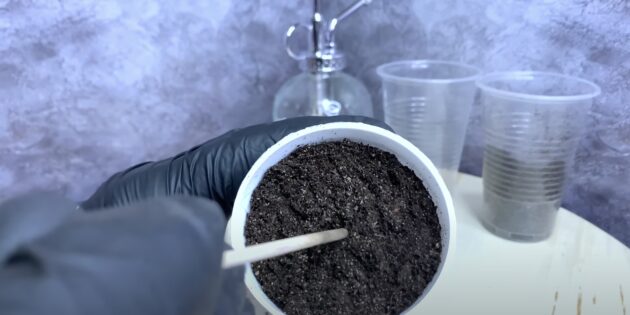
Place the bone in the hole.
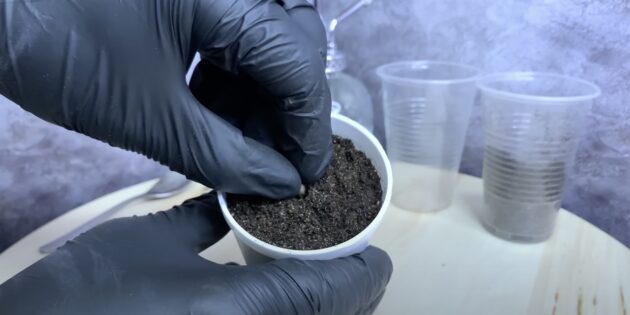
Sprinkle the tangerine with soil and lightly seal its surface with your fingers or a spoon.
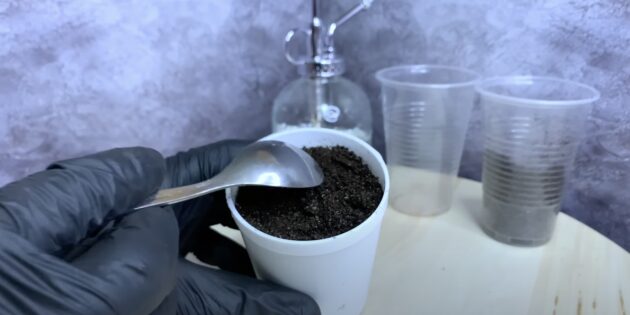
Moisten the crops with water from a spray bottle or pipette so as not to blur the soil surface. Cover the pot with a transparent lid, cling film or a plastic bag.
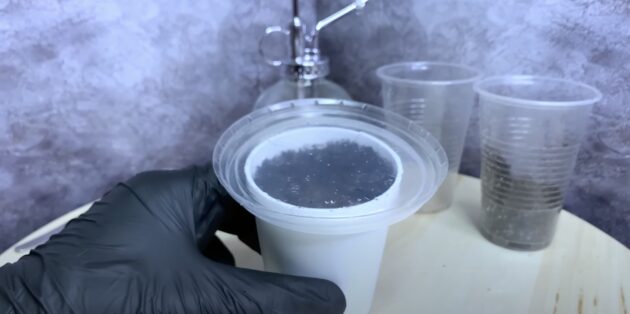
Put the mini‑greenhouse in a well-lit place with a temperature of 22-25 ° C. Take off the shelter for 10-15 minutes every day to ventilate — this will protect the seeds from fungal diseases. Spray the soil, preventing it from drying out.
They will appear in about 2-4 weeks. When you see a tangerine sprout, immediately remove the shelter, otherwise the seedlings will begin to stretch and it will turn out weak.
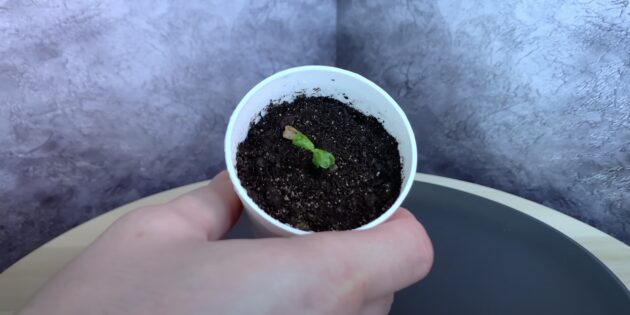
Keep the plant in a well-lit place with a temperature of 20 to 25 °C. In the warmer months, you can move a pot of tangerine to fresh air — for example, on a balcony or outside.
Do this regularly, preventing the soil from drying out in the pot. Excessive watering can also be disastrous, so stick to the golden mean and make sure that the soil is always slightly moist.
Pour the tangerine with slightly warm water under the root. And also spray the leaves daily (preferably several times a day) from a spray bottle — this is especially important during the heating season and in the summer heat.
When the young plant reaches a length of about 30 cm, cut off the top of its head with a sharp pruner or scissors. This will stimulate the growth of lateral shoots, and the tangerine will develop more harmoniously, taking the form of a lush tree.
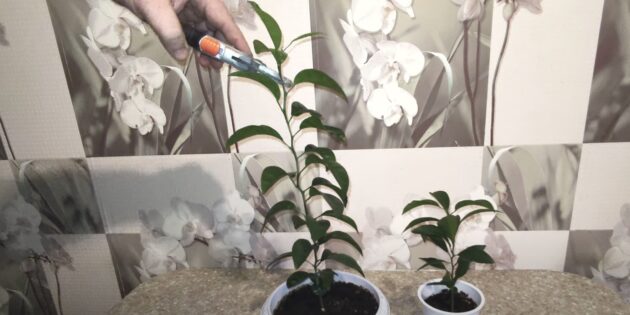
In the first year, the seedling receives all the necessary nutrients from the soil, so it does not need additional nutrition. Starting from the age of two, the plant is fed — from the end of January to the end of September with a frequency of once every 10-14 days. From October to January, the tree is dormant and fertilizers are not needed.
Choose complex top dressing for citrus fruits. The consumption rates and the method of application are found in the instructions.
Also, from the end of January to the beginning of summer, a composition with an even distribution of nitrogen, phosphorus and calcium is suitable for mandarin — for example, 20 : 20 : 20. Dilute 2 g of the product in 1 liter of slightly warm water and pour the plant under the root, pre-moistening the soil, or spray the leaves. One tree will need from 50 to 100 ml, depending on its age.
From June to September, give preference to formulations with a low nitrogen content and high concentrations of phosphorus and potassium. For example, solutions of superphosphate (5 g per 1 liter of warm water) and potassium sulfate (3 g per 1 liter of warm water) can be alternated.